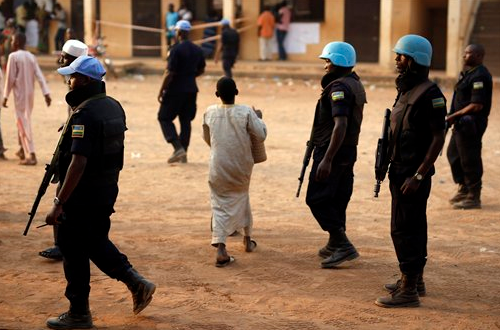BANGUI, Central African Republic — The Central African Republic went ahead with a presidential runoff vote Sunday that many hope will solidify a tentative peace after more than two years of sectarian fighting left untold thousands dead and forced nearly 500,000 people to flee to neighboring countries.
Voters chose between two former prime ministers — both promising to unite the country and bring peace. Front-runner Anicet Georges Dologuele received about 24 percent in the first round and was endorsed by the third-place finisher. However, Faustin Archange Touadera has strong grassroots support after placing second in the December ballot.
Whoever wins will face the enormous task of trying to exert authority throughout a country where heavily armed rebel groups still control large swaths of territory. The next president also will be tasked with stamping out the impunity that has long existed in Central African Republic, a country where more presidents have come to power through coups than democratic elections since independence from France in 1960.
Sunday's vote, which was delayed several times, was designed to bring an end to the transitional government set up two years ago. Its formation was the culmination of a chaotic period during which the last elected president was overthrown by rebels, then the rebel leader was forced to step aside as his fighters carried out atrocities against civilians.
Absent during the vote was the gunfire heard during earlier balloting, though many complained their names weren't on the list at their polling station while others were turned away for lack of photo identification.
Residents set aside painful memories of the chaos that intensified in late 2013 when Christian militia fighters known as the anti-Balaka attacked Bangui, unleashing cycles of retaliatory violence with mostly Muslim Seleka fighters. At the height of the violence, Muslim civilians bore the wrath of vengeance-seeking mobs that killed and dismembered victims in the streets.
